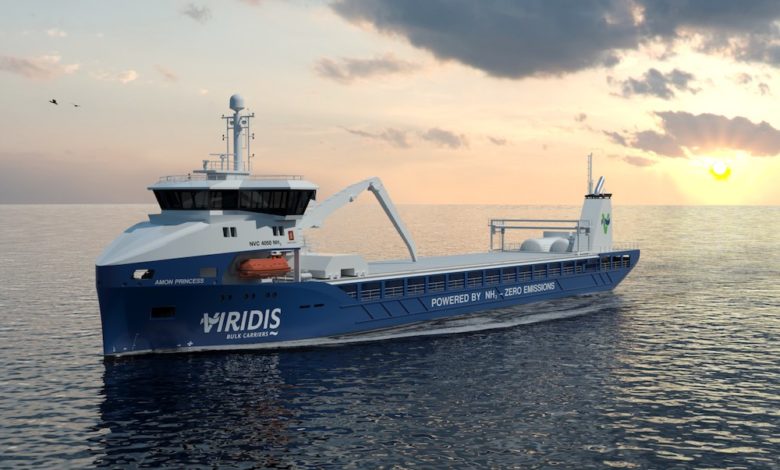Breakthrough as cargo owners sign up for pioneering ammonia-powered shipping project

Ammonia-powered shipping startup Viridis Bulk Carriers has signed memoranda of undertanding with cargo owners Elkem, Vestkorn, BioMar, Franzefoss Minerals and Saltimport. Together, the partners are setting out to develop a zero emission freight network based on Viridis’ ships and cargo volumes from each client partner.
In addition to further developing the ship technology platform, the partnership will explore a zero-emission logistics system comprising ships, fuel logistics and flows of cargo from the five cargo owners. The end goal of the project is a flexible bulk shipping network, served by a fleet of ammonia-powered ships, based on long term contracts of affreightment.
The ships will be sufficiently flexible to handle varying types and volumes of cargo, in terms of both operational range and functional capabilities, while maintaining crew and societal safety at the level of conventional ships.
Viridis Bulk Carriers expects to place orders for these revoltionary ships next year, with deliveries starting in 2024.
“We see clear synergies between the cargo flows of our client partners. This is a good starting point to achieve high ship utilisation,” commented Espen Nordstrøm, co-founder of Viridis Bulk Carriers.
With the increased productivity in the logistics chain, the goal is to reduce the cost impact of utilising carbon free ammonia fuel, which will likely be more expensive than fuels used today.
Other cargo owners have been invited to join this pioneering ammonia project.
